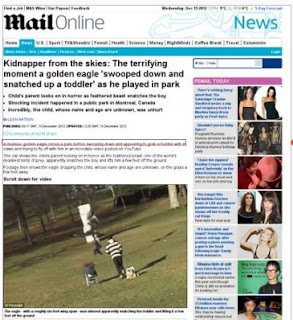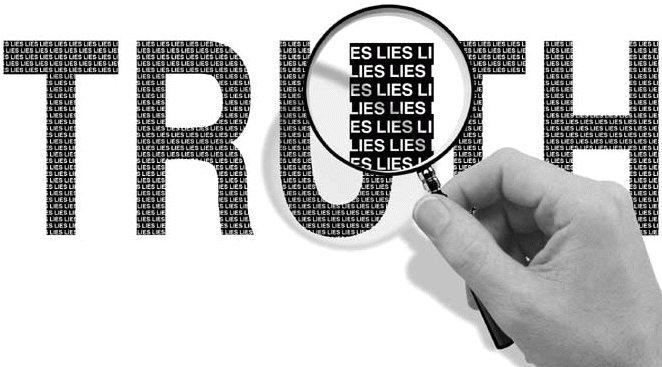Let the Mail lay all its cards on the table. This paper has no desire for Britain to pull out of Europe — and particularly not at a time like this, when withdrawal would add immeasurably to the uncertainties threatening our recovery and rocking the confidence of the markets.The economic FUD (Fear Uncertainty and Doubt) has already started in earnest. Courtesy of the BBC across it's broadcasting outlets we have this from Bank of England governor Mark Carney:
[He] has said that the UK should hold its EU referendum "as soon as necessary".
"We talk to a lot of bosses and there has been uncertainty whether it's for the election or the referendum," said Mr Carney on the BBC's Today programme.
Analysts fear businesses may delay making investments while there is uncertainty over Britain's future in the EU."FUD, FUD glorious FUD" means that if we are to win a referendum, it is essential to negate it by making it clear that the UK will remain in the Single Market post exit for the time being as to make it economically neutral. It remains our only hope of clearing the first hurdle required to ultimately win.
But it’s certainly obvious that it will be a significant challenge in trying to overturn the message of the establishment, media and FUD, all of which will be heavily funded. Not least because the eurosceptic movement is so divided with no coherent message.
Certainly this was the experience of the early 1970's with our entry into the then EEC where pro-market lobby groups were co-ordinated under the umbrella of the European Movement part funded by the EU Commission to act as an integral part of the government campaign.
Efforts were made, by the Heath government, to bring the media on board particularly the BBC where eurosceptic presenters were dismissed in favour of more sympathetic ones. Less competent or more divisive spokesmen were chosen by the media, and the BBC, to represent the "out" campaign for negative effect.
We are, therefore, in danger of being greatly damaged by FUD, and currently we are losing the FUD war - it's being created faster than can be responded to by various media outlets including blogs. Richard North notes:
Talking yesterday to a senior politician, he observed that the "out" campaign should already have a rapid rebuttal unit up and running, to deal with this sort of thing. To my mind, it is an indictment of Ukip, which should already be equipped to handle false claims.Thus the "out" campaign is going to have to establish its own permanent rebuttal units to monitor and counter media FUD. This was a tactic very successfully adopted by New Labour in the lead up to their landslide victory in 1997. Peter Oborne's book on Alastair Campbell observes (page 134):
[Campbell] put into effect the new electoral technology which New Labour had imported from the United States: the giant media war-room, the 24 hour monitoring of television, radio and press outlets, a rapid rebutal serivce, a savage clampdown on MPS and Shadow ministers who spoke out of turn...Labour's ferocious internal discipline was the key to its success.This gives an indication of the ruthlessless required to win a referendum, particularly if the odds are stacked against us. The internet and social media becomes the key.
In stark contrast to the [Tories]...Labour MPS were prevailed upon to limit their public utterances to the bland platitudes imposed upon them by the party machine.
...what gave Labour complaints the edge was that they were inevitably well-researched and sensibly focused. The vigilance was extraordinary. Roger Mosey, then the editor of the Today programme, recalls: 'If you had a line that Labour didn't like on the 6.30am bulletin you got called instantly. Often Labour complaints had some substance...if there was a glimmer of an inaccuracy they were onto you.'
In addition with newspapers we have a complaints procedure, which obviously anyone can use. Post-Leveson what was the Press Complaints Commission (PCC) has now become the Independent Press Standards Organisation (IPSO) and we will address the significance of this with a subsequent piece.
Here we will concentrate on television broadcasters. The 1975 referendum, being the first nationwide poll of its kind in the UK, presented broadcasters with hitherto unknown dilemmas of balance and responsibility. Up to that point, in general elections, broadcasters used the existing strength of parties in MPs, or in votes, at the last election as a guide in establishing the priorities of the coverage.
The White Paper of February 1975 offered no particular formula or solution, instead its 'advice' was one of hope rather than one born out of regulatory oversight (page 19):
4.9 The Government are confident that the IBA and BBC will exercise editorial discretion designed to ensure that there is a fair balance between the opposing views in news and feature programmes. The broadcasting authorities may also decide to run a series of short "referendum broadcasts" analogous to party political broadcasts. In this way an equal number of short periods of television time would-be"made available to the main campaigning organisations in the two or three weeks before polling day.
The Government would welcome such an initiative.Whereas in 1975, the government was "confident", hardly an endorsement of rigorous oversight, now we have regulatory authorities in place regarding the impartiality of broadcasters.
With the establishment of the Ofcom under the Communications Act 2003 and the establishment of the Electoral Commission under the Political Parties, Elections and Referendums Act 2000 the broadcasting oversight is more structured which means that crucially it is an avenue where we can complain. Ofcom provided examples of this oversight during the Scottish referendum.
With regard to Ofcom, broadcasters should ensure that they comply with Section Five: (Due Impartiality and Due Accuracy and Undue Prominence of Views and Opinions):
To ensure that news, in whatever form, is reported with due accuracy and presented with due impartiality. To ensure that the special impartiality requirements of the Act are complied with.And broadcasters also have to comply with Section Six (Elections and Referendums) of the Code:
To ensure that the special impartiality requirements in the Communications Act 2003 and other legislation relating to broadcasting on elections and referendums, are applied at the time of elections and referendums.In addition, there is the prohibition of political advertising in Section 321 of the Communications Act 2003:
(2) For the purposes of section 319(2)(g) an advertisement contravenes the prohibition on political advertising if it is:This applies to the multitude of local television and radio outlets with the exception of the BBC which is overseen by the BBC Trust.
(a) an advertisement which is inserted by or on behalf of a body whose objects are wholly or mainly of a political nature;(3) For the purposes of this section objects of a political nature and political ends include each of the following:
(b) an advertisement which is directed towards a political end; or
(c) an advertisement which has a connection with an industrial dispute.
(a) influencing the outcome of elections or referendums, whether in the United Kingdom or elsewhere;
In the 1960's JFK embraced the relatively new medium of television to great effect, this in contrast Barack Obama who embraced the new medium of the internet in 2008. His internet campaign was crucial to winning the Presidency.
We can therefore learn the lessons of using a new medium to try to keep the old medium of broadcasters "honest", or by simply by-passing them. Thus in the UK we can embrace the internet in the same effective way and with regulatory bodies in place over the traditional legacy media the internet allows us as individuals to facilitate a campaign to ensure some resemblance of impartiality. The simple use of Twitter has worked before
Thus unlike 1975 we now have the internet and everything that comes with it; smartphones, Twitter, Facebook and forums. The establishment no longer has a monopoly on information. Scotland revealed the significance of this development. The independence campaign was a dry run of how an EU referendum would be conducted and it showed comprehensively that unofficial campaigns centered on social media was very powerful.
By using the internet to lobby regulatory bodies, each one of us can make a small but significant difference.









